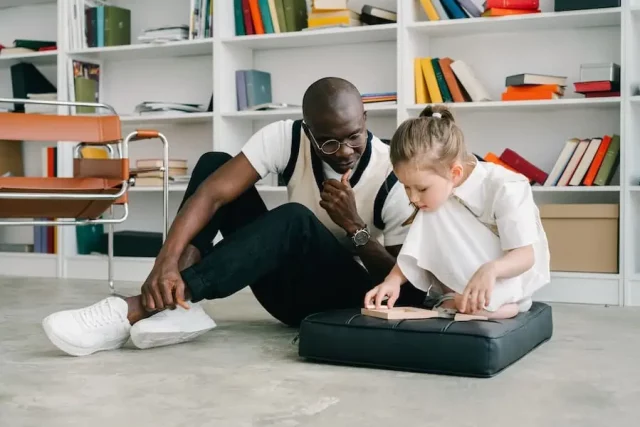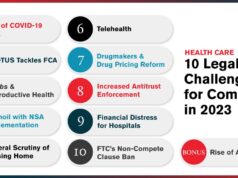Educational psychologists play a crucial role in understanding and enhancing individuals’ learning and development processes within educational settings. They apply psychological theories and principles to address students’ challenges, such as learning disabilities, behavioral issues, and social difficulties.
If you are passionate about psychology and have a desire to positively impact education, becoming an educational psychologist might be the ideal career path for you. In this article, we present a step-by-step guide on how to pursue a rewarding career as an educational psychologist.
1. Obtain A Bachelor’s Degree In Psychology Or Related Field
The first step toward becoming an educational psychologist is to earn a bachelor’s degree in psychology or a closely related field. During your undergraduate studies, focus on courses that cover child development, cognitive psychology, educational psychology, and abnormal psychology. Engage in relevant research projects or internships to gain practical experience in the field.
2. Pursue A Master’s Degree In Educational Psychology
To become a certified educational psychologist, a master’s degree in educational psychology or a similar discipline is typically required. Research and choose accredited programs that offer comprehensive coursework in educational psychology. The program should cover topics such as human development, learning processes, assessment strategies, and intervention techniques.
And in today’s digital era, you even have the opportunity to pursue your master’s degree through online programs. Universities recognize the need to provide flexible and accessible options for individuals with other commitments. A master’s in educational psychology degree online offers the same comprehensive coursework and academic rigor as its on-campus counterpart, allowing you to engage with learning theories, assessment methods, counseling techniques, and research methodologies from home.
3. Gain Practical Experience Through Internships And Practicums
Some subjects are skill-based and practice-oriented. Theoretical knowledge of skill-based subjects needs to be supported by practice. And educational psychology is primarily a skill-based profession.
Getting theoretical knowledge has no real value until you can apply it for practical purposes. Studies also show that employers value experience over grades. One survey found that 48% of employers valued prior experience over grades in general, but only 20% of employers valued academic records.
During your master’s program, seek out internships or practicums in educational settings. These hands-on experiences provide opportunities to apply theoretical knowledge in real-world educational settings, working directly with students, teachers, and professionals in the field.
Look for opportunities that expose you to various educational settings, such as schools, clinics, or community organizations. This exposure allows you to work with diverse populations, including students with different abilities, cultural backgrounds, and educational needs.
Collaborate closely with experienced professionals such as educational psychologists and counselors during your placements. Learn from their expertise, observe their practices, and actively engage in team discussions to gain insights into effective intervention strategies and assessment techniques.
Establish meaningful connections with the students you work with. Engage in active listening, provide support, and create a safe and welcoming environment for their growth and development.
Internships and practicums also offer you a chance to expand your professional network. Attend conferences, workshops, and meetings where you can connect with professionals in the field. Building relationships with practitioners, researchers, and educators can open doors to future collaborations and job opportunities.
4. Obtain Licensure Or Certification
Obtaining licensure or certification is the next step in becoming a certified educational psychologist. Licensure requirements vary depending on the country or region in which you plan to practice, so it is essential to research the specific requirements in your area.
Many jurisdictions require a certain number of supervised work experience hours before you can apply for licensure. These hours involve direct practice in educational settings under the supervision of a licensed educational psychologist or other qualified professionals. Document your supervised experience and keep accurate records of your completed hours.
In many cases, you will also need to pass an examination, such as the Examination for Professional Practice in Psychology (EPPP). The examination can be challenging. In April 2023, only 46.74% of candidates passed the EPPP exam. So ensure you prepare well by studying relevant textbooks, taking practice tests, and attending review courses if available.
Submitting your application for licensure or certification typically includes providing documentation of your academic qualifications, supervised experience, and examination results. Follow the instructions carefully and ensure you include all necessary forms and supporting documents.
5. Consider Pursuing A Doctoral Degree (Optional)
While a master’s in educational psychology is typically the minimum requirement to become a certified educational psychologist, you can pursue a doctoral degree in the field. A doctoral degree, such as a Ph.D. or Psy.D. in Educational Psychology, can open up research and scholarship opportunities for you. You will have the chance to engage in original research, contribute to the existing knowledge base in educational psychology, and potentially publish your findings in scholarly journals.
Doctoral programs also offer teaching assistantships or opportunities to teach undergraduate courses. Teaching experience allows you to develop valuable pedagogical skills and gain practical experience in effectively communicating complex concepts to students. This experience can be particularly beneficial if you want to pursue an academic career or work in educational institutions that value teaching expertise.
6. Continuously Enhance Your Knowledge And Skills
To stay updated with developments in the field of educational psychology, you must engage in continuous professional development. Participate in workshops, seminars, conferences, and training programs related to educational psychology. These events offer ample opportunities to learn from experts, explore emerging topics, and gain new perspectives.
Keep up-to-date with research publications and scholarly articles in educational psychology. Regularly read journals, academic publications, and research papers to stay informed about the latest findings and studies. This enables you to integrate current research into your practice and make evidence-based decisions.
You should also stay updated with technological advancements and explore how they can enhance your practice. Educational technology tools, online resources, and digital platforms can facilitate assessment, intervention, data analysis, and communication with students, teachers, and parents.
Conclusion
Becoming an educational psychologist is a rewarding career path that allows you to impact students’ lives positively. By following this step-by-step guide, you can set yourself on the path toward becoming a qualified and compassionate professional in educational psychology.
Remember to seek guidance from mentors and professionals and always strive to expand your knowledge and skills.














